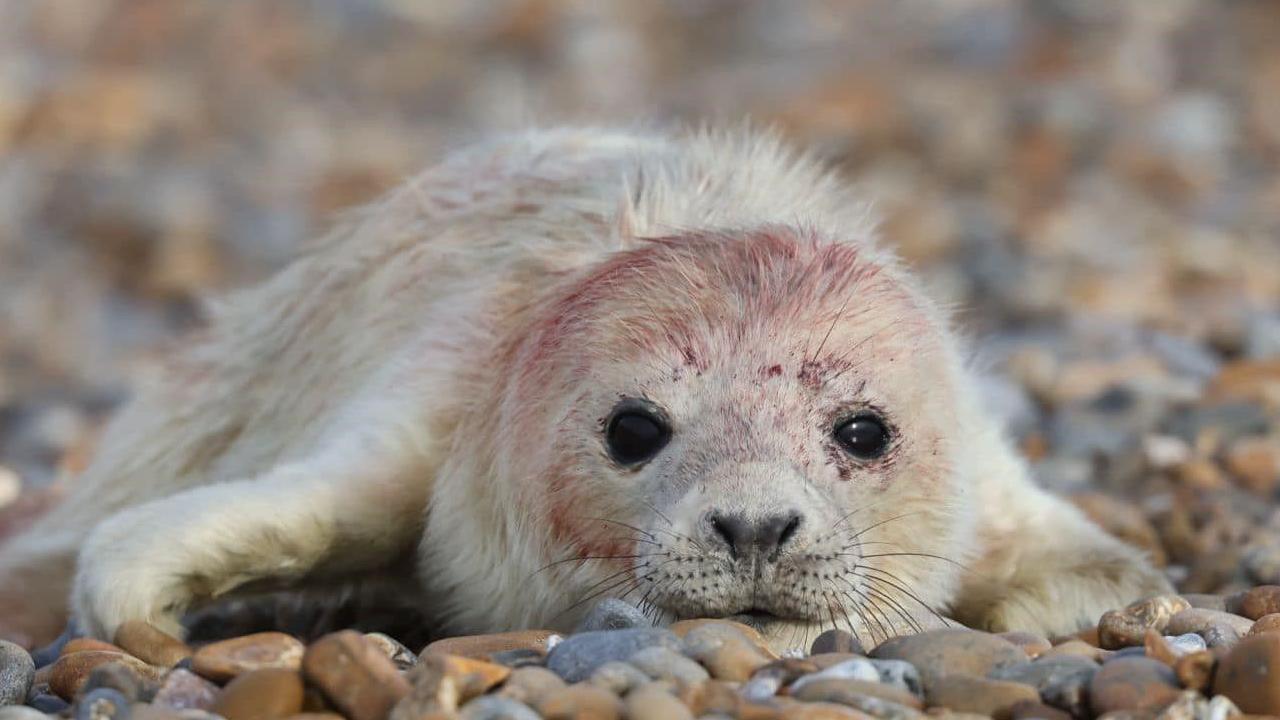Seal mothers 'may be moving to less crowded sites'
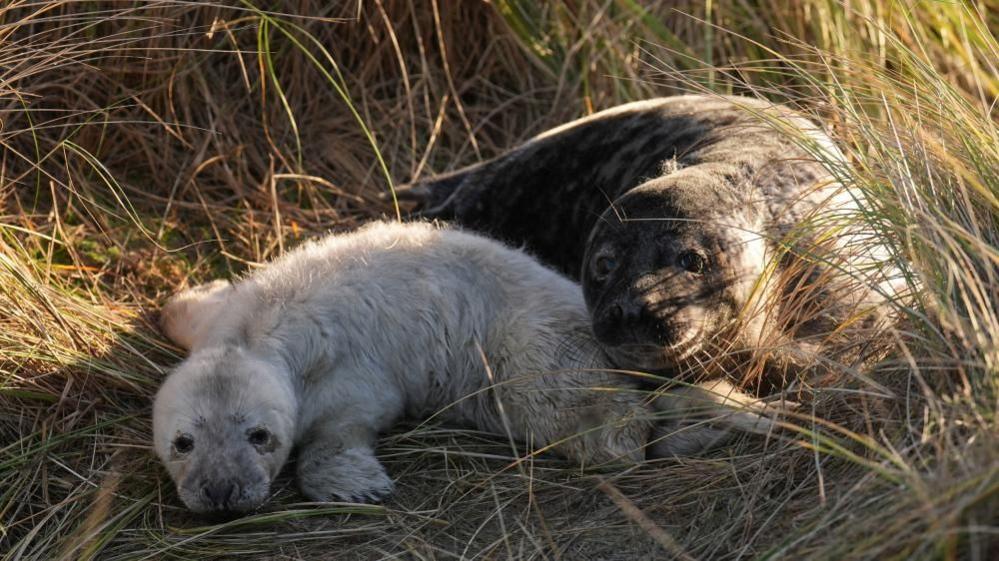
Figures show pup numbers at Horsey Gap have levelled out
- Published
The number of pups born on one of England's best-known seal sites is levelling out, figures suggest.
A group that counts grey seal pups on a five-mile (8km) stretch of Norfolk coast around Horsey Gap, external says numbers have stopped rising in the past two years.
But Peter Ansell, chairman of Friends of Horsey Seals, external, said he did not think the downward trend was a cause for alarm.
He said he thought seals might be opting to give birth in Suffolk or Lincolnshire instead.
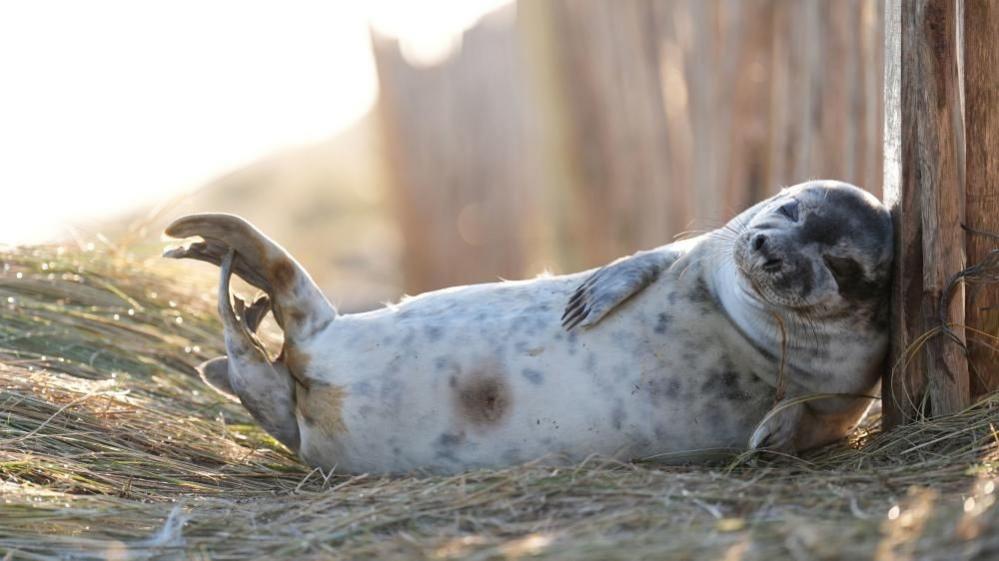
Peter Ansell thinks seals may be finding less crowded places to give birth
Mr Ansell, an 89-year-old retired transport manager, said he had been involved with the seal pup count for about two decades.
"We've normally had a 5% increase year-on-year," he said.
"But in the past two years the numbers have levelled out."
He said pups were born between October and February, and that the group carried out weekly counts.
Mr Ansell stressed that counting seals was difficult and that figures were probably not 100% accurate.
The latest showed about 3,200 had been born since October - about 370 down on a year ago, he said.
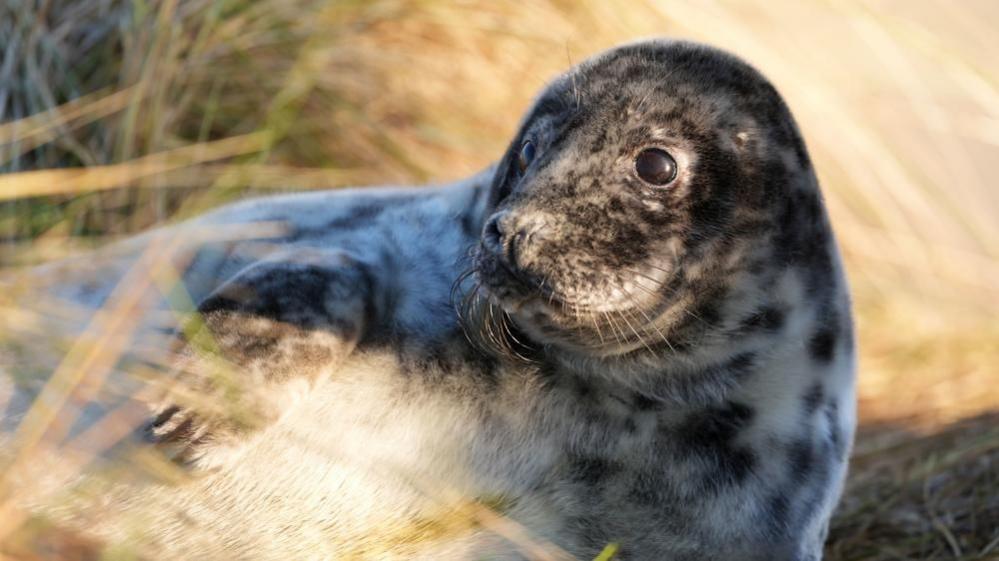
Mr Ansell said there was no evidence that global warming was affecting seals around Horsey Gap
"There's no evidence of any environmental or global warming issue or anything like that," he added.
"My personal opinion is it gets so crowded down there for them when they're giving birth, I think perhaps some of them now have found other places to go."
He said there were two other big colonies on the East coast: Blakeney Point, external in Norfolk and Donna Nook, external in Lincolnshire.
There was also a "small colony" at Orford Ness, external in Suffolk, he added.
Last month, the site manager of Orford Ness suggested seals were thriving there due to a "lack of human disturbance".
Get in touch
Do you have a story suggestion for Norfolk?
Follow Norfolk news on BBC Sounds, Facebook, external, Instagram, external and X, external.
Related topics
- Published31 December 2024
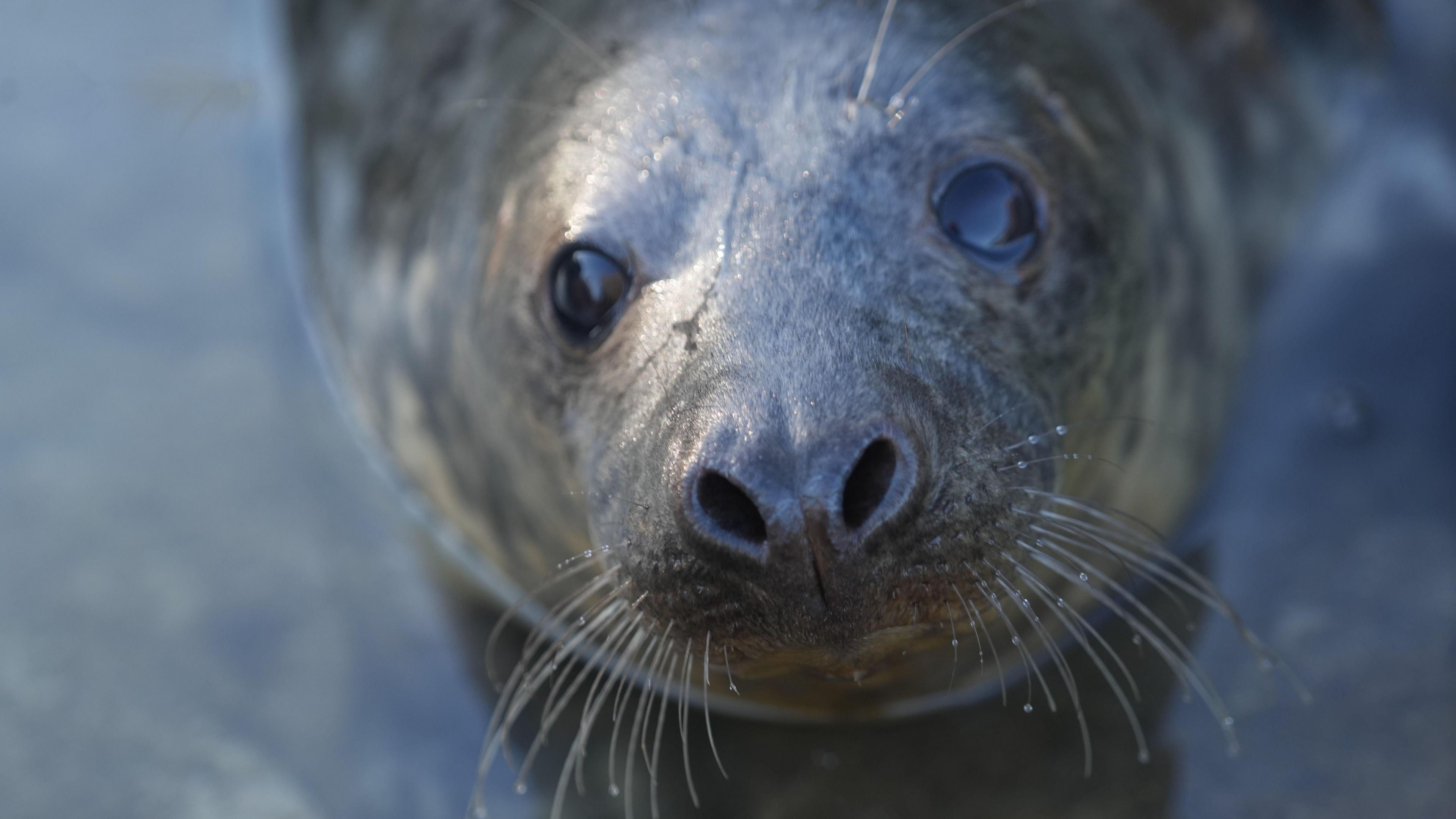
- Published28 December 2024
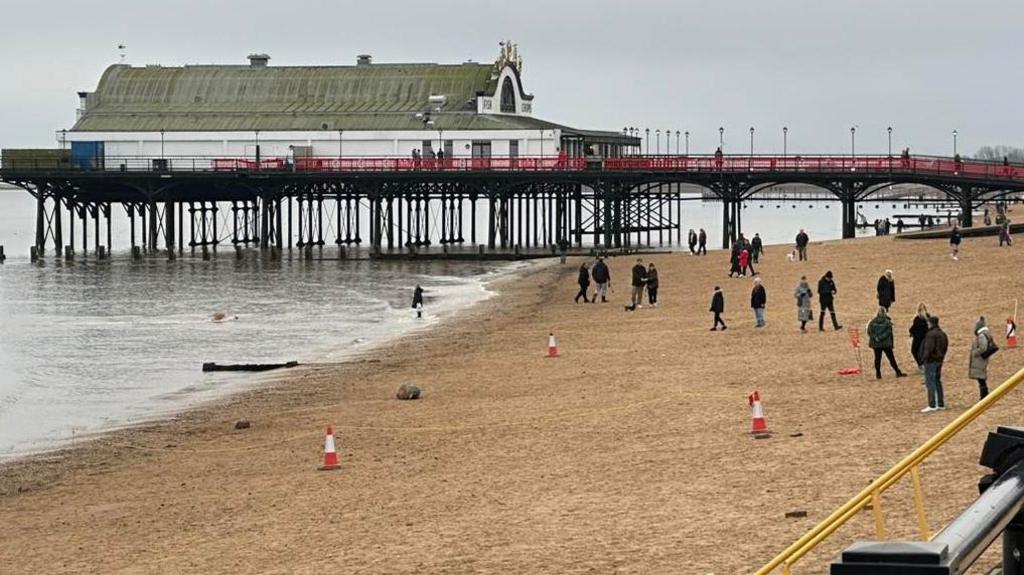
- Published11 December 2024
